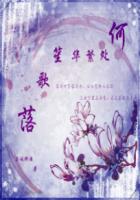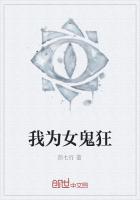"Maidens with voices like honey for sweetness that breathe desire, Would that I were a sea-bird with limbs that never could tire, Over the foam-flowers flying with halcyons ever on wing, Keeping a careless heart, a sea-blue bird of the spring."But our old captive, having said farewell to love, has yet a kindly smiling interest in its fever and folly. Nothing better has he met, even now that he knows "a lad is an ass." He tells a love story, a story of love overmastering, without conscience or care of aught but the beloved. And the viel caitif tells it with sympathy, and with a smile. "Oh folly of fondness," he seems to cry, "oh merry days of desolation""When I was young as you are young, When lutes were touched and songs were sung, And love lamps in the windows hung."It is the very tone of Thackeray, when Thackeray is tender, and the world heard it first from this elderly, nameless minstrel, strolling with his viol and his singing boys, perhaps, like a blameless d'Assoucy, from castle to castle in "the happy poplar land." One seems to see him and hear him in the twilight, in the court of some chateau of Picardy, while the ladies on silken cushions sit around him listening, and their lovers, fettered with silver chains, lie at their feet. They listen, and look, and do not think of the minstrel with his grey head and his green heart, but we think of him. It is an old man's work, and a weary man's work. You can easily tell the places where he has lingered, and been pleased as he wrote. They are marked, like the bower Nicolete built, with flowers and broken branches wet with dew. Such a passage is the deion of Nicolete at her window, in the strangely painted chamber, "ki faite est par grant devisse panturee a miramie."Thence "she saw the roses blow, Heard the birds sing loud and low."Again, the minstrel speaks out what many must have thought, in those incredulous ages of Faith, about Heaven and Hell, Hell where the gallant company makes up for everything. When he comes to a battle-piece he makes Aucassin "mightily and knightly hurl through the press," like one of Malory's men. His hero must be a man of his hands, no mere sighing youth incapable of arms. But the minstrels heart is in other things, for example, in the verses where Aucassin transfers to Beauty the wonder-working powers of Holiness, and makes the sight of his lady heal the palmer, as the shadow of the Apostle, falling on the sick people, healed them by the Gate Beautiful. The Flight of Nicolete is a familiar and beautiful picture, the daisy flowers look black in the ivory moonlight against her feet, fair as Bombyca's "feet of carven ivory" in the Sicilian idyll, long ago.
It is characteristic of the poet that the two lovers begin to wrangle about which loves best, in the very mouth of danger, while Aucassin is yet in prison, and the patrol go down the moonlit street, with swords in their hands, sworn to slay Nicolete. That is the place and time chosen for this ancient controversy. Aucassin's threat that if he loses Nicolete he will not wait for sword or knife, but will dash his head against a wall, is in the very temper of the prisoned warrior-poet, who actually chose this way of death.
Then the night scene, with its fantasy, and shadow, and moonlight on flowers and street, yields to a picture of the day, with the birds singing, and the shepherds laughing, in the green links between wood and water. There the shepherds take Nicolete for a fairy, so bright a beauty shines about her. Their mockery, their independence, may make us consider again our ideas of early Feudalism. Probably they were in the service of townsmen, whose good town treated the Count as no more than an equal of its corporate dignity. The bower of branches built by Nicolete is certainly one of the places where the minstrel himself has rested and been pleased with his work. One can feel it still, the cool of that clear summer night, the sweet smell of broken boughs, and trodden grass, and deep dew, and the shining of the star that Aucassin deemed was the translated spirit of his lady. Romance has touched the book here with her magic, as she has touched the lines where we read how Consuelo came by moonlight to the Canon's garden and the white flowers. The pleasure here is the keener for contrast with the luckless hind whom Aucassin encountered in the forest: the man who had lost his master's ox, the ungainly man who wept, because his mother's bed had been taken from under her to pay his debt. This man was in that estate which Achilles, in Hades, preferred above the kingship of the dead outworn. He was hind and hireling to a villein, [Greek text]
It is an unexpected touch of pity for the people, and for other than love-sorrows, in a poem intended for the great and courtly people of chivalry.
At last the lovers meet, in the lodge of flowers beneath the stars.
Here the story should end, though one could ill spare the pretty lecture the girl reads her lover as they ride at adventure, and the picture of Nicolete, with her brown stain, and jogleor's attire, and her viol, playing before Aucassin in his own castle of Biaucaire.
The burlesque interlude of the country of Torelore is like a page out of Rabelais, stitched into the cante-fable by mistake. At such lands as Torelore Pantagruel and Panurge touched many a time in their vague voyaging. Nobody, perhaps, can care very much about Nicolete's adventures in Carthage, and her recognition by her Paynim kindred. If the old captive had been a prisoner among the Saracens, he was too indolent or incurious to make use of his knowledge. He hurries on to his journey's end;"Journeys end in lovers meeting."
So he finishes the tale. What lives in it, what makes it live, is the touch of poetry, of tender heart, of humorous resignation. The old captive says the story will gladden sad men:-"Nus hom n'est si esbahis, tant dolans ni entrepris, de grant mal amaladis, se il l'oit, ne soit garis, et de joie resbaudis, tant par est douce."This service it did for M. Bida, the painter, as he tells us when he translated Aucassin in 1870. In dark and darkening days, patriai tempore iniquo, we too have turned to Aucassin et Nicolete.















